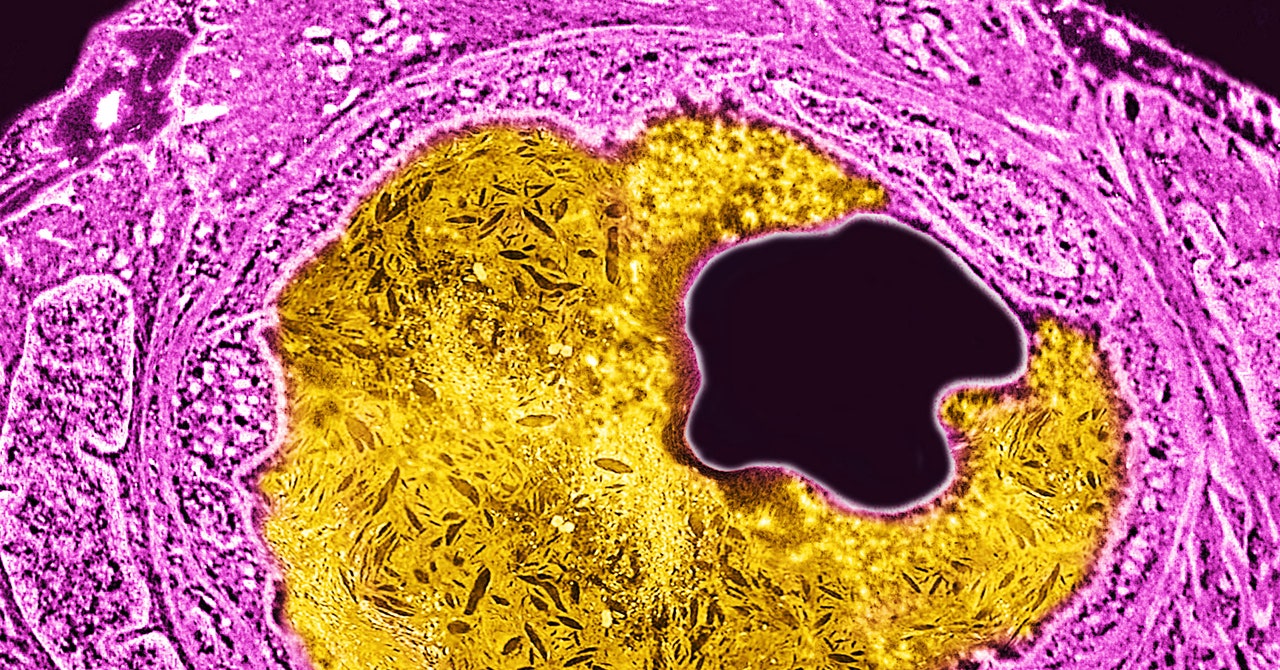
In a small initial test in people, researchers have shown that a single infusion of a novel gene-editing treatment can reduce cholesterol, the fatty substance that clogs and hardens arteries over time.
The experiment was carried out in 10 participants with an inherited condition that causes extremely high LDL, or “bad,” cholesterol levels, which can lead to heart attack at an early age. Despite being on cholesterol-lowering medications, the volunteers were already suffering from heart disease. They joined a trial in New Zealand and the United Kingdom run by Verve Therapeutics, a Cambridge, Massachusetts–based biotech company.
The gene-editing treatment aims to permanently lower cholesterol by using Crispr to edit a gene in the liver. Researchers gave a single infusion, in varying doses, to the patients whose average age was 54. While the lower doses didn’t have much of an effect, the highest dose reduced LDL cholesterol by 55 percent in the single patient who received it. Meanwhile, two patients who got the next-highest dose saw reductions of 39 percent and 48 percent.
The first patient was treated just six months ago, and researchers are still following all of the participants. The preliminary results were presented at the American Heart Association’s annual meeting in Philadelphia on November 12.
Gene editing could provide a more lasting option for treating hereditary high cholesterol, which today requires long-term medication. “The current care consists of daily pills and intermittent injections that must be taken for decades. This places a very heavy treatment burden on patients, providers, and the health care system,” said Andrew Bellinger, chief scientific officer of Verve Therapeutics, at a news conference over the weekend.
But no one has ever used gene editing to lower cholesterol in people before. “This is a strategy that could be revolutionary,” said Karol Watson, a cardiologist at UCLA, during the news conference. “But we have to make sure it’s safe.”
The treatment uses a newer, more precise form of Crispr called base editing to inactivate a gene in the liver called PCSK9. This gene plays a critical role in controlling LDL cholesterol in the blood. Instead of cutting genes, as Crispr is designed to do, base editing simply swaps one DNA letter for another. Verve’s treatment is designed to change an A to a G, which effectively turns the PCSK9 gene off.

